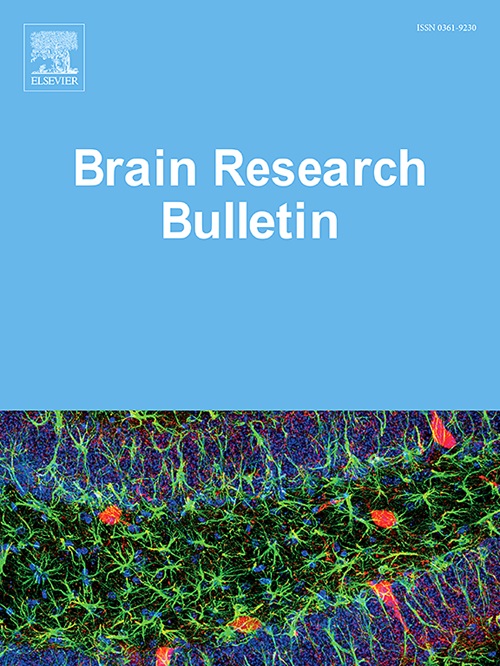Reversing the impact of an obesogenic diet on emotion regulation and brain metabolism: A rat model study
IF 3.5
3区 医学
Q2 NEUROSCIENCES
引用次数: 0
Abstract
The global rise in obesity and poor dietary habits, particularly the consumption of high-fat, high-sucrose (HFS) diets, is a growing public health concern. These diets, especially when consumed during critical developmental periods, such as gestation and early life, are linked to long-term consequences on both physical and mental health. Early exposure to obesogenic diets has been shown to disrupts brain function and increases the risk of anxiety, depression, and additional emotional disorders. However, it has been suggested that dietary changes during early life may reverse these effects. This study investigated whether switching from an HFS diet to a standard diet (SD) after weaning could reverse abnormal emotional responses (o anxiety- and depression-like behavior) and brain energy metabolic capacity in rats.
Male and female Wistar rats were divided into three groups: one on continuous SD, one on an HFS diet from gestation until adulthood, and one that shifted from HFS to SD after weaning. Emotional behavior was assessed using the saccharin preference test, forced swimming test, and elevated zero maze test. Brain metabolism was evaluated by measuring cytochrome c oxidase (CCO) activity in key regions involved in emotion regulation, such as the nucleus accumbens, ventral pallidum, dorsal striatum, and the bed nucleus of stria terminalis.
Adult animals exposed to the HFS diet exhibited increased depression and anxiety-like behaviors, and elevated CCO activity. Notably, sex differences were observed, with males showing more pronounced anxiety- and depression-like behaviors, although both sexes improved after diet switching. These findings suggest that early dietary interventions can mitigate diet-induced emotional and metabolic disturbances, thereby underscoring the importance of nutrition during critical developmental periods.
求助全文
约1分钟内获得全文
求助全文
来源期刊

Brain Research Bulletin
医学-神经科学
CiteScore
6.90
自引率
2.60%
发文量
253
审稿时长
67 days
期刊介绍:
The Brain Research Bulletin (BRB) aims to publish novel work that advances our knowledge of molecular and cellular mechanisms that underlie neural network properties associated with behavior, cognition and other brain functions during neurodevelopment and in the adult. Although clinical research is out of the Journal''s scope, the BRB also aims to publish translation research that provides insight into biological mechanisms and processes associated with neurodegeneration mechanisms, neurological diseases and neuropsychiatric disorders. The Journal is especially interested in research using novel methodologies, such as optogenetics, multielectrode array recordings and life imaging in wild-type and genetically-modified animal models, with the goal to advance our understanding of how neurons, glia and networks function in vivo.
 求助内容:
求助内容: 应助结果提醒方式:
应助结果提醒方式:


